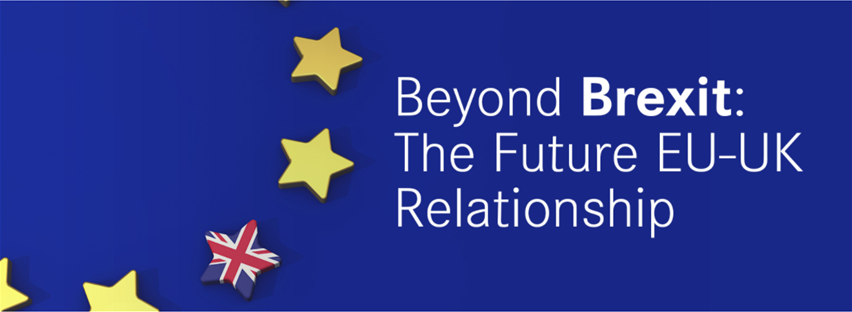The United Kingdom left the European Union on 31 January 2020. In our regular Brexit Blog, Matheson partners will keep you up to date by reviewing the negotiations on the future relationship of the EU and the UK as these unfold.

Starved of our regular diet of sporting action, it was tempting to view the re-ignition of Brexit negotiations on Wednesday 15 April as the re-emergence from an enforced pit stop behind a safety car. Sporting administrators worldwide would have empathised with the challenge facing David Frost, the UK’s Chief Negotiator and Michel Barnier, the European Commission’s Chief Negotiator, as they considered how to deal with a truncated negotiating ‘season’ in an environment where large gatherings are not possible. The prize in this case, however, is altogether more material than any sporting trophy and the consequences of failure are altogether more profound than any sporting loss.
The 15 April discussion took place by video conference and focussed on how the parties would make up for time lost due to the COVID-19 pandemic which had resulted in the cancellation of two planned face-to-face negotiating rounds. The statement which followed the meeting that “The two sides agreed on the need to organise further negotiating rounds in order to make real, tangible progress in the negotiations by June” impressively conveyed a sense of calm in the face of the ever increasing challenge facing the parties. It was agreed that three rounds of talks would take place by video conference on the weeks beginning 20 April, 11 May and 1 June. The original published schedule had anticipated nine rounds of face-to-face negotiations taking place in that period. A High Level Conference will be held in June to assess progress.
There were also further signs this week that the British strategy for these negotiations appears to be to take the race to the opposition in the hope that they will blink. Despite the gathering narrative that an extension to the transition period is inevitable as time passes (a narrative which arguably always underplayed the political difficulties in choreographing an extension), on 16 April David Frost expressed the view that “Extending would simply prolong negotiations, create even more uncertainty, leave us liable to pay more to the EU in future, and keep us bound by evolving EU laws at a time when we need to control our own affairs. In short, it is not in the UK’s interest to extend.” This has been followed by confirmation from Downing Street sources that the UK will refuse to extend, even if the EU requested a delay – citing the need for the UK to have flexibility in dealing with COVID-19 rather than being bound to EU rules.
This approach serves as a reminder that Boris Johnson came to power on the back of a promise to “get Brexit done” and to adopt a tougher negotiating stance than that of his predecessor. It also serves as a reminder that the European Research Group within the Conservative Party has not gone away. David Davis MP, the former Brexit Secretary, stated that “the unfortunate COVID-19 events will mean that cross-border traffic will be depressed and customs will be more than able to handle the traffic.” This echoes hard Brexit thinking that the worse the economic collapse, the less customs traffic and ironically the best time to implement radical changes in rules.
There may also be an unspoken calculation by the UK negotiating team that COVID-19 will impact the talks in an altogether different way. With Europe now clearly heading for a recession, some in the UK may anticipate that the desire of many EU countries to run the risk of a hard Brexit which could prolong that recession is likely to be low, making a better deal possible. While the desire to return to normal activity will no doubt be a significant factor for all EU member states, in adopting this approach the UK may risk underestimating both the degree of frustration felt by many EU countries at the UK’s approach to Brexit, and the belief of some EU countries that a hard Brexit is pain worth taking if it underscores to others the benefits of EU membership. At a time when divisions between member states about the EU response to the pandemic have been sufficiently great to result in the Commission President offering a public and heartfelt apology to Italy on behalf of the EU on the same day as the UK was confirming that an extension would not be sought or granted, it could be dangerous to underestimate how strong that feeling of preserving the EU might be. A stand against what may be seen as an unreasonable position by a former member state may be seen as a way of restoring a sense of unity and common purpose.
What is clear from this week’s developments is that as the laps are counted down more quickly, the risks of a hard Brexit increase. If an extension is to be actually arrived at, as distinct from simply assumed, there must be a mutually agreed and sensitively executed series of steps to get there. The political challenges involved in achieving that should not be underestimated.
Useful Links:
EU-UK Joint Statement,15 April 2020
For further information:
If you would like to know more about Matheson’s Brexit Advisory Services, please contact michael.jackson@matheson.com, sharon.daly@matheson.com, your usual Matheson contact or any member of our dedicated Brexit Advisory Group.